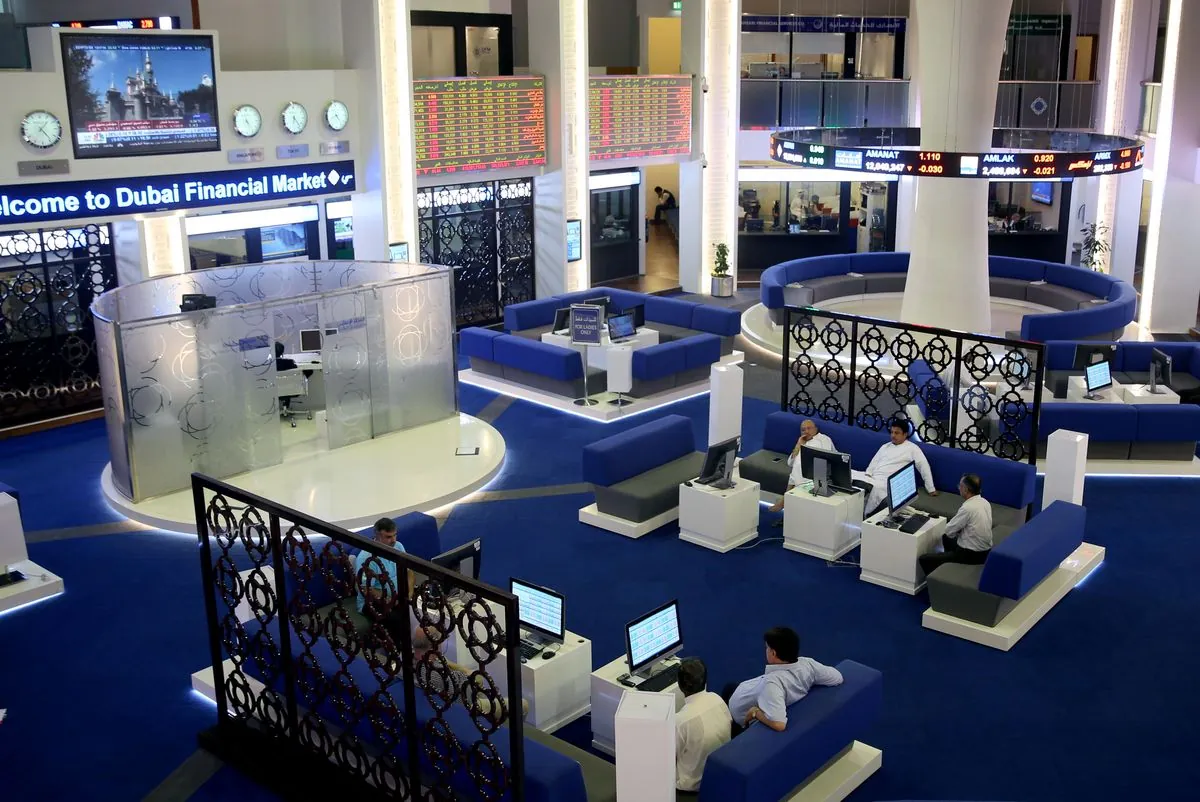UAE Markets Rise on U.S. Data, Fed Rate Cut Hopes Amid Regional Tensions
UAE stock markets gained as positive U.S. economic data boosted investor sentiment. Ongoing Gaza ceasefire talks in Qatar aim to ease regional tensions and end the conflict.

The United Arab Emirates' financial markets experienced an upward trend on Friday, August 16, 2024, as investors responded positively to encouraging U.S. economic indicators and anticipated a potential rate reduction by the Federal Reserve. This shift in market sentiment follows the release of data suggesting moderation in U.S. inflation while maintaining robust retail spending.
The UAE, a federation of seven emirates established in 1971, has become a significant economic player in the Middle East. Its stock markets, including the Dubai Financial Market and Abu Dhabi Securities Exchange, both founded in 2000, serve as crucial indicators of the country's economic health.
Emirates NBD Bank, the UAE's largest banking group by assets, saw a modest increase of 0.3% in its stock value. Concurrently, Watania International Holding experienced a substantial 14.3% surge following the announcement of its quarterly profits. However, Emaar Properties, a major real estate developer in the UAE, faced a 1.8% decline.

The monetary policies of the Gulf Cooperation Council (GCC), an organization established in 1981 that includes the UAE, are typically influenced by Federal Reserve decisions. This alignment is due to most regional currencies, including the UAE dirham, being pegged to the U.S. dollar. The UAE dirham has maintained a fixed exchange rate of 3.6725 dirhams per dollar since 1997.
In Abu Dhabi, the benchmark index also recorded gains for the third consecutive session. International Holding Company (IHC), one of the UAE's most valuable companies by market capitalization, saw a 0.9% increase. ADNOC Distribution, a subsidiary of the state-owned Abu Dhabi National Oil Company, which controls over 90% of the UAE's oil reserves, experienced a 2.6% rise.
It's worth noting that while Dubai's economy relies on less than 5% of its GDP from oil, Abu Dhabi's economy is more oil-dependent. This economic diversity has contributed to the UAE becoming the third-largest economy in the Middle East and the most diversified within the GCC.
Amidst these financial developments, ongoing negotiations in Qatar aim to broker a ceasefire agreement in Gaza. These talks are crucial for preventing regional escalation and ending a conflict that has resulted in numerous Palestinian casualties and Israeli hostages held by Hamas.
The UAE's involvement in regional diplomacy has been notable, as it was the first Gulf country to establish diplomatic relations with Israel in 2020. This diplomatic breakthrough highlights the UAE's growing influence in Middle Eastern geopolitics.
On a weekly basis, Dubai's index experienced a slight decline of 0.2%, while Abu Dhabi's index showed a more robust performance with a 1.4% increase. These figures reflect the complex interplay of global economic factors and regional developments affecting the UAE's financial markets.


































